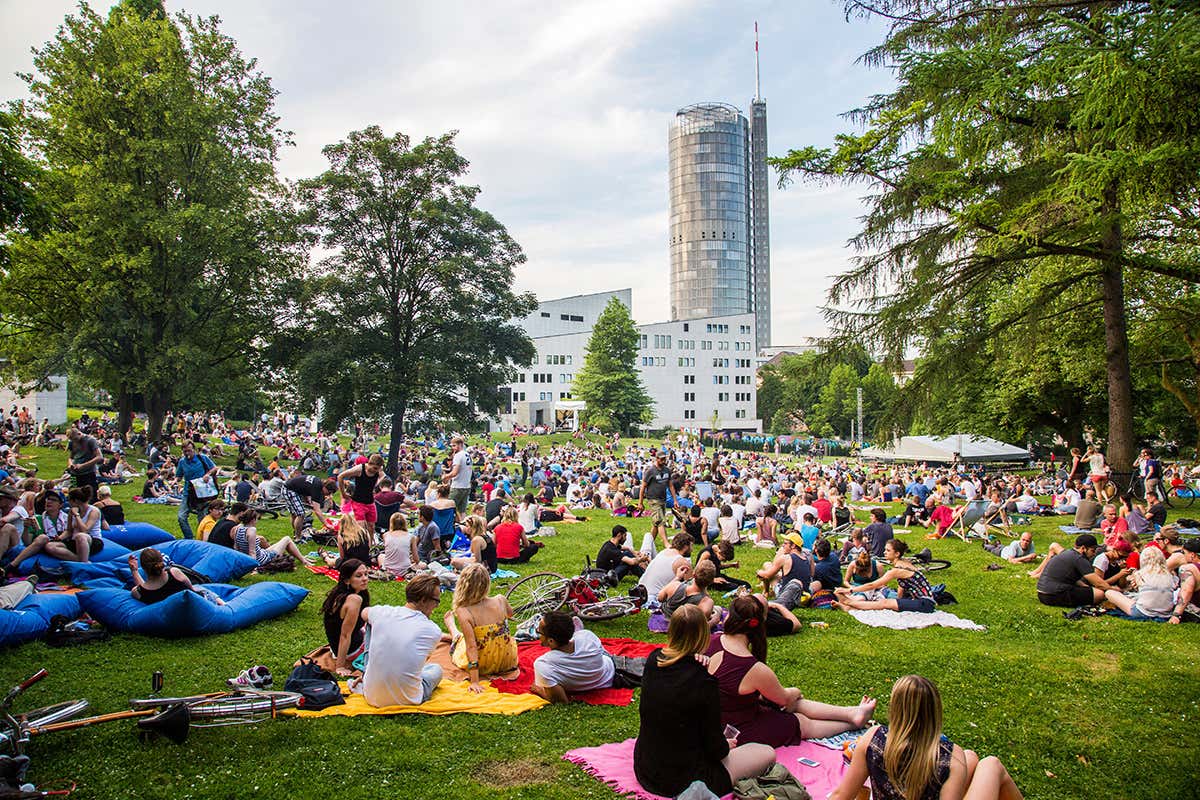The Role of Simple Living in Stress Reduction and Improving Quality of Life

Understanding Simple Living
In an age where multitasking and the accumulation of possessions often take center stage, simple living presents itself as a viable antidote to the chaos of modern life. This lifestyle philosophy encourages individuals to pare down their commitments and possessions, paving the way for a more intentional and fulfilling existence. By prioritizing essential experiences over material goods, people can significantly reduce the anxiety that stems from excessive complexity and an overwhelming pace.
Core Elements of Simple Living
One of the most impactful components of simple living is decluttering, which not only pertains to physical spaces but also applies to emotional and digital environments. The act of clearing out unnecessary items from your home can create a refreshing sense of space and freedom. Studies have shown that individuals who live in organized spaces report a more positive mood and increased productivity. For instance, take the popular concept of the “30-Day Minimalism Game,” where participants remove one item on the first day, two items on the second, and so forth for the entire month. This gradual approach can be an effective way to declutter and promote mindfulness about what we truly need.
Mindful consumption also plays a significant role in this lifestyle. It encourages individuals to thoughtfully assess their purchases and make choices that align with their values, often favoring sustainability and quality over convenience or quantity. For example, opting for fewer, high-quality clothes that can last for years—rather than a fast-fashion wardrobe—fosters not just appreciation for the items one possesses but also an understanding of the environmental impact of one’s consumption habits. This aspect of simple living resonates strongly with the growing movement towards sustainability and eco-consciousness in the United States.
The Impact on Relationships
Moreover, simple living champions the importance of building meaningful connections over acquiring possessions. The societal pressure to accumulate wealth and goods can sometimes overshadow the importance of nurturing healthy relationships with family and friends. Social connectivity is crucial for emotional support; studies suggest that strong relationships can enhance longevity and well-being. For instance, opting to spend quality time with loved ones, such as weekly dinners or game nights, can deepen bonds and introduce joy that material items simply cannot provide.
Benefits of Embracing Simplicity
Research has consistently indicated that those who adopt simple living practices experience a notable improvement in quality of life and emotional health. Many report feeling liberated from the pressures of consumerism, ultimately leading to lower levels of anxiety and depression. Furthermore, the practice can usher in an increased sense of happiness and fulfillment as individuals dedicate more time to pursuits that matter to them. Activities such as volunteering, pursuing hobbies, or enjoying nature can instill a profound sense of purpose in daily life.

Ultimately, the pursuit of simple living serves as a transformative journey towards lesser stress and amplified joy. By embracing this approach, you may discover not just a simpler life but a richer, more rewarding experience overall. As you consider the facets of this lifestyle, explore how stripping away the unnecessary can lead you to a place of tranquility and purpose, reshaping your everyday for the better.
DIVE DEEPER: Click here to discover how minimalism can change your space
The Psychological Benefits of Simple Living
Embracing simple living not only impacts our physical surroundings but also has profound effects on mental health and emotional well-being. As modern life becomes increasingly frenetic, many individuals find themselves trapped in a cycle of stress, striving to meet unrealistic expectations set by society. By consciously choosing simplicity, one can experience significant stress reduction and ultimately an enhanced quality of life.
At its core, simple living promotes a shift in focus away from external pressures and material accumulation towards internal satisfaction and personal fulfillment. This transition often begins with a deliberate reassessment of priorities, which can serve as the foundation for a more peaceful and balanced existence. Here are several ways simple living contributes to mental clarity and emotional resilience:
- Reduction of Decision Fatigue: With fewer possessions and obligations to manage, making daily decisions becomes less overwhelming. Research indicates that reducing clutter can lead to clearer thinking and enhanced focus, ultimately creating mental space to prioritize what truly brings joy.
- Fostering Presence: Simple living encourages individuals to engage fully in the moment rather than being distracted by countless notifications and material distractions. This mindful approach allows for deeper enjoyment of life’s experiences, leading to greater happiness.
- Encouragement of Gratitude: By embracing a lifestyle that values quality over quantity, individuals often cultivate a greater appreciation for what they have. This shift in mindset has been linked to decreased feelings of anxiety and depression, fostering a positive outlook on life.
Physical Benefits of a Simplified Lifestyle
Beyond the psychological aspects, the physical benefits of adopting a simple lifestyle are equally compelling. Engaging in activities that align with simple living can promote better health and well-being. Simple living encourages:
- Active Living: Simplifying schedules often creates opportunities to engage in outdoor activities, such as hiking, biking, or gardening. These activities not only promote physical fitness but also offer the added benefits of fresh air and connection with nature.
- Healthier Eating Habits: As people simplify their lives, they often gravitate towards home-cooked meals and mindful eating. This shift often results in improved nutritional choices, as processed foods and fast food become less prominent in one’s diet.
- Improved Sleep Quality: Reduced clutter and a more tranquil environment can contribute to better sleep patterns. Disturbances from excessive noise and visual distractions can diminish sleep quality, while a simpler, calmer space can act as a sanctuary for rest.
In summary, simple living offers a holistic framework for addressing both stress and overall quality of life. By deconstructing the complexities of modern existence and creating a lifestyle centered on intention, individuals can uncover a path to tranquility and fulfillment. As busy lives continue to pull many in different directions, the call to reintegrate simplicity may very well be the answer to reclaiming peace and joy. As we delve deeper into this topic, we will explore more facets of simple living and its transformative potential on individuals and communities alike.
| Category | Benefits |
|---|---|
| Reduced Clutter | A decluttered space leads to a clearer mind, lowering anxiety levels and promoting a sense of peace. The act of simplifying your environment fosters enhanced focus. |
| Mindful Consumption | Engaging in mindful consumption encourages individuals to consider the impact of their purchases, cultivating a deeper appreciation for what they own while reducing financial stress. |
| Quality Time | Emphasizing relationships over materialism allows for more quality time spent with family and friends, strengthening social bonds which are essential for emotional well-being. |
| Improved Mental Health | A simpler lifestyle promotes mental clarity and reduces feelings of overwhelm by focusing on essential activities that bring joy, such as hobbies and exercise. |
In exploring the intricacies of simple living, it’s evident that this lifestyle approach not only reduces stress but also enhances the overall quality of life. By embracing a minimalist mindset, individuals often find themselves more inclined to engage in meaningful interactions, foster a sense of community, and prioritize well-being over unnecessary accumulation. Research suggests that by adopting simple living practices, people are more capable of living in the moment and appreciating the **natural** beauty around them. Stress reduction coupled with improved relationships can lead to a more fulfilling and balanced life, urging us to appreciate the small joys rather than succumbing to material pressures.
DISCOVER MORE: Click here to dive deeper
Community and Connection: The Social Aspects of Simple Living
In addition to individual benefits, simple living has a remarkable ability to foster connections within communities. As people begin to simplify their lives, they often move toward practices that promote collaboration and relationship-building. This social aspect can significantly alleviate feelings of loneliness and isolation, which are becoming increasingly prevalent in today’s digital world.
One compelling illustration of this phenomenon can be found in the rise of community gardens. These spaces not only provide fresh produce but also cultivate a sense of belonging among participants. According to a report from the American Community Gardening Association, community gardening has been shown to enhance mental well-being, boost self-esteem, and forge connections among neighbors. When individuals work alongside one another, they share experiences, skills, and knowledge, creating a supportive network that can help buffer against stress.
Reducing Consumerism and Its Associated Stress
At the heart of simple living lies a challenge to the consumerist culture that often dictates modern life. The constant pursuit of material possessions can lead to immense pressure and anxiety. By choosing to embrace simplicity, individuals can actively reject the societal standards that encourage overconsumption and prioritize their values instead. When people make a conscious effort to buy less and focus on experiences and relationships, they engage in what psychologist Dr. Ryan Howell refers to as “experiential consumption,” which has shown to enhance life satisfaction and reduce stress.
Statistics support this perspective; a study in the Journal of Consumer Research revealed that individuals who prioritize experiences over material goods report higher levels of happiness and lower levels of stress. By minimizing the need for constant purchases, people can alleviate financial burdens and create space for more fulfilling and enriching endeavors in their lives.
The Role of Minimalism in Clarity and Purpose
Another important component of simple living is minimalism. This philosophy extends to eliminating not just physical clutter but also emotional and mental chaos. Minimalism encourages individuals to evaluate their commitments, relationships, and even digital consumption. For many, disconnecting from social media and limiting distractions can lead to a clearer mind and a greater sense of purpose. In a survey conducted by the Pew Research Center, individuals who reported taking breaks from social media experienced increased self-worth and reduced stress levels.
Moreover, minimalism can lead to financial freedom. By embracing a minimalist lifestyle, people often learn to prioritize saving and investing over spending. Financial stability can significantly reduce anxiety and stress, allowing individuals to channel their energies toward endeavors that bring joy and fulfillment instead of worrying about their financial situation.
In the grand tapestry of simple living, the strands of community, connection, and minimalism weave together to create a supportive environment for reducing stress and enhancing overall quality of life. By choosing to simplify, individuals are not just improving their lives; they are also contributing to a larger movement that values presence, purpose, and genuine relationships. As this shift towards simplicity continues to gain momentum, it invites more individuals to explore how they, too, can reclaim their peace and joy amidst the complexities of modern existence.
DISCOVER MORE: Click here to uncover practical decluttering tips
Conclusion: Embracing Simple Living for a Stress-Free Life
In an age characterized by frenetic activity and pervasive consumer culture, simple living emerges as a powerful antidote to stress and a pathway toward a more meaningful existence. By intentionally choosing to simplify our lives, we not only strip away the excess that burdens us but also cultivate a lifestyle that prioritizes well-being and joy. The emphasis on community connections demonstrates how simplifying can lead to a deeper sense of belonging, helping to combat loneliness often exacerbated by modern technology.
Furthermore, the move towards minimalism offers individuals a chance to focus on what truly matters—relationships, experiences, and personal growth. This shift can reduce the anxiety tied to financial stress by fostering a mindset that prioritizes saving over spending, subsequently enhancing both mental and emotional wellness. Evidence suggests that individuals who embrace such a lifestyle report lower stress levels and increased satisfaction, encouraging others to investigate the benefits of experiential consumption over material possession.
As we reflect on the transformative power of simple living, it becomes clear that this approach not only enhances quality of life but also promotes a collective movement towards greater awareness and mindfulness. By prioritizing simplicity, individuals can find serenity amidst chaos and nurture a deeper connection with themselves and their communities. Now is the time to explore and embrace the profound impact that simple living can have on our lives—by navigating toward a balanced, stress-free existence, we invite happiness back into our everyday routines.

